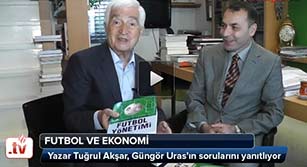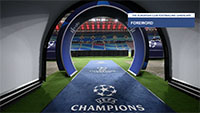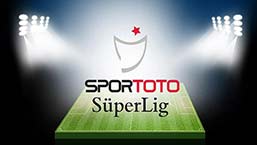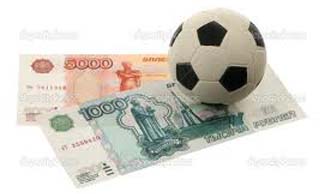- Hata
-
- JUser::_load: Unable to load user with id: 62
 Haberler & Makaleler
Haberler & Makaleler  Kriz
Kriz  Tuğrul AKŞAR
Tuğrul AKŞAR  Can Football Be Saved? (Futbol Kurtarılabilir mi?)
Can Football Be Saved? (Futbol Kurtarılabilir mi?)
| Can Football Be Saved? (Futbol Kurtarılabilir mi?) |
|
The sport is more popular than ever -- but the losses keep mounting. What can be done to fix the business? There was no way European football fans could miss Adidas' (ADDDY ) new Roteiro ball during the month of June. Thanks to a deal between Adidas-Salomon and the Union of European Football Assns., the silver and black Roteiro was the only ball to appear on the pitch during the European football championship in Portugal from June 12 to July 4. Beckham bent it, Zidane juggled it, and even the animated logo that appeared during programming transitions often displayed the Roteiro -- and prominently, too. The payoff: Inside of a few weeks the Herzogenaurach, (Germany)-based Adidas sold 6 million balls, top models of which feature a seamless outer skin and retail for over $120. "You get exposure you simply couldn't achieve without an event like this," says Adidas CEO Herbert Hainer. {jcomments on}
|
Degerli yazarimiz Cuma, 19 Nisan 2024.
YAZARIN DIGER YAZILARINI GORMEK ICIN TIKLAYIN
- Dünya Kupası: Şikeye karşı FIFA'dan sıkı önlemler (05 Mart 2014)
- Which country has the highest tax rate in the Soccer? (05 Mart 2014)
- Which country has the highest tax rate in the Soccer? (05 Mart 2014)
- Euro 2016 elemelerinde Türkiye, Hollanda ile aynı grupta (24 Şubat 2014)
- M. City model aldığı Barcelona'ya karşı (21 Şubat 2014)
- Fenerbahçe'nin Tahvil İhracına Koşullu izin (18 Şubat 2014)
- Fenerbahçe'nin Tahvil İhracına Koşullu izin (18 Şubat 2014)
- 19.Yüzyılda Futbol Nasıl Oynanıyordu? (18 Şubat 2014)
- Alex Brezilya'da Futbolcuları Greve Götürebilecek mi? (17 Şubat 2014)
- MPs demand football clubs allow far greater supporter involvement (17 Şubat 2014)
- MPs demand football clubs allow far greater supporter involvement (17 Şubat 2014)
- Fenerbahçe'den Yeni Forma Sponsorluk Sözleşmesi (13 Şubat 2014)
- Manchester City reported losses of £51.6m for 2012/13 (30 Ocak 2014)
- Manchester City reported losses of £51.6m for 2012/13 (30 Ocak 2014)
- Manchester City reported losses of £51.6m for 2012/13 (30 Ocak 2014)
- Premier League clubs dominates the international transfer market (30 Ocak 2014)
- Premier League clubs dominates the international transfer market (30 Ocak 2014)
- English clubs were by far world football's biggest spenders on overseas players in 2013 (30 Ocak 2014)
- English clubs were by far world football's biggest spenders on overseas players in 2013 (30 Ocak 2014)
- English clubs were by far world football's biggest spenders on overseas players in 2013 (30 Ocak 2014)
- Para Ligi'nde 2 Türk Takımı (24 Ocak 2014)
- Barcelona'da Kriz: Neymar Transferi İstifa Getirdi. (24 Ocak 2014)
- Barcelona'da Kriz: Neymar Transferi İstifa Getirdi. (24 Ocak 2014)
- A Transformation, Not a Transition, for Manchester United (21 Ocak 2014)
- A Transformation, Not a Transition, for Manchester United (21 Ocak 2014)
- Fenerbahce Boss Links Soccer Match-Fixing Case to Turkey Corruption Probe (21 Ocak 2014)
- Governments Must Do More to Fight Fixing, Say FIFA (21 Ocak 2014)
- Yargıtay Şike Davası'nda Aziz Yıldırım'ın Cezasını Onadı (17 Ocak 2014)
- Futbolda yükselen Arap sermayesi (17 Ocak 2014)
- Milan Eski Oyuncusu Seedorf'u Teknik Direktörlük Görevine Getirdi (17 Ocak 2014)
- Fenerbahçe Spor Kulübü'nün Faaliyet Raporu ve Borç Analizi (10 Ocak 2014)
- Fenerbahçe Spor Kulübü'nün Faaliyet Raporu ve Borç Analizi (10 Ocak 2014)
- Bayern Munich ready to take on Premier League for world domination (10 Ocak 2014)
- Financial Fair Play: Potential Challenges Under and Against the UEFA Regulations (07 Ocak 2014)
- Will Clubs be Banned for not Breaking-Even? A Review of Recent FFP Cases (07 Ocak 2014)
- Will Clubs be Banned for not Breaking-Even? A Review of Recent FFP Cases (07 Ocak 2014)
- Formalar Neden Boş kaldı? (03 Ocak 2014)
- Premier League: January transfer window 2014 - who needs what (03 Ocak 2014)
- Money Buys Soccer Teams, but Not Goals (03 Ocak 2014)
- Chelsea 2013'ü 49.4 Milyon Sterlin Zararla Kapattı (02 Ocak 2014)
- Chelsea 2013'ü 49.4 Milyon Sterlin Zararla Kapattı (02 Ocak 2014)
- Chelsea report £49.4m loss but meet Financial Fair Play rules (02 Ocak 2014)
- Chelsea report £49.4m loss but meet Financial Fair Play rules (02 Ocak 2014)
- Chelsea report £49.4m loss but meet Financial Fair Play rules (02 Ocak 2014)
- Premier League plays by government rules – with poverty wages for the rest (26 Aralık 2013)
- Premier League plays by government rules – with poverty wages for the rest (26 Aralık 2013)
- Para Kazandırmayan Şike, Şike Sayılır mı? (13 Aralık 2013)
- Champions League: Which teams have qualified for the last 16? (12 Aralık 2013)
- Top'un Hikayesi (11 Aralık 2013)
- David Moyes must figure fourth place is big ask for Manchester United (09 Aralık 2013)
- David Moyes must figure fourth place is big ask for Manchester United (09 Aralık 2013)
- Why Manchester United's Lack of Leadership on the Pitch Is to Blame This Season (07 Aralık 2013)
- BREZİLYA'DA GRUPLAR BELLİ OLDU (06 Aralık 2013)
- Fenerium 224 MilyonTL'na Futbol AŞ.'ne Satılıyor (06 Aralık 2013)
- Fenerium 224 MilyonTL'na Futbol AŞ.'ne Satılıyor (06 Aralık 2013)
- Would the Bundesliga really be better off without Bayern and Dortmund? (06 Aralık 2013)
- Would the Bundesliga really be better off without Bayern and Dortmund? (06 Aralık 2013)
- The rise and fall and rise of Borussia Dortmund and the Germany team (06 Aralık 2013)
- Top Deyip Geçmeyin! (05 Aralık 2013)
- SPOR KULÜPLERİ KANUN TASARISI TASLAĞI (28 Kasım 2013)
- Six arrests in football match-fixing investigation (28 Kasım 2013)
- Fenerbahçe Borç Arayışında (22 Kasım 2013)
- Türk Futbolu, Bir Futbol Bilgesini, Doğan Koloğlu'nu Kaybetti. (21 Kasım 2013)
- 2014 Dünya Kupasında Hangi Ülkeler Brezilya'ya Gidecek? (20 Kasım 2013)
- How Qatar became a football force: from Barcelona to PSG and World Cup (20 Kasım 2013)
- Futbol Anlayışımız (20 Kasım 2013)
- UEFA positive over 2012 club finances (28 Ekim 2013)
- UEFA positive over 2012 club finances (28 Ekim 2013)
- UEFA positive over 2012 club finances (28 Ekim 2013)
- State of the Game: Premier League now less than one third English (11 Ekim 2013)
- State of the Game: How UK's world football map has changed (10 Ekim 2013)
- Turkish soccer’s financial crisis potentially sharpens political divide (10 Ekim 2013)
- Turkish soccer’s financial crisis potentially sharpens political divide (10 Ekim 2013)
- Debt Dwarfing Manchester United Shows Turkish Soccer Rot (08 Ekim 2013)
- Futbolda Kurumsal Yönetime Doğru Kurumsal Sosyal Sorumluluk (04 Ekim 2013)
- Fifa must consult over Qatar World Cup switch, says Richard Scudamore (04 Ekim 2013)
- Dünya Kupası Kışın Mı Oynanacak? (04 Ekim 2013)
- Dünya Kupası'nın Karanlık Yüzü (03 Ekim 2013)
- Manchester United Liverpool'un Geçmişteki hatalarını mı Tekrarlıyor? (03 Ekim 2013)
- Monaco have plenty of money and ambition but not many supporters (23 Eylül 2013)
- Monaco have plenty of money and ambition but not many supporters (23 Eylül 2013)
- Manchester United spent £71m in 2012-13 financing debt of takeover (23 Eylül 2013)
- Manchester United spent £71m in 2012-13 financing debt of takeover (23 Eylül 2013)
- Manchester United spent £71m in 2012-13 financing debt of takeover (23 Eylül 2013)
- How to read the UEFA ranking (17 Eylül 2013)
- Türkiye'ye UEFA'dan Puan Darbesi (17 Eylül 2013)
- Gareth Bale: What the transfer means for Real Madrid (16 Eylül 2013)
- Gareth Bale: What the transfer means for Real Madrid (16 Eylül 2013)
- Kulüplerde Gelirler Arttı, Borçlar ve Zararlar da! (13 Eylül 2013)
- Kulüplerde Gelirler Arttı, Borçlar ve Zararlar da! (13 Eylül 2013)
- BBC Price of Football 2013 Revealed (13 Eylül 2013)
- Artık İddaa Gelirlerine Haciz Konulabilecek (05 Eylül 2013)
- Artık İddaa Gelirlerine Haciz Konulabilecek (05 Eylül 2013)
- Galatasaray'ın rakipleri Real Madrid, Juventus, Kopenhag (02 Eylül 2013)
- Uluslararası Tahkim Mahkemesi CAS Fenerbahçe'nin 2 Sezonluk Cezasını Onayladı (29 Ağustos 2013)
- How Uefa's seeding system helps Arsenal & Hinders Celtic (28 Ağustos 2013)
- How Uefa's seeding system helps Arsenal & Hinders Celtic (28 Ağustos 2013)
- TFF yeni futbol disiplin talimatını kabul etti (07 Ağustos 2013)
- Payments to 2012/13 Europa League clubs (24 Temmuz 2013)
- Payments to 2012/13 Europa League clubs (24 Temmuz 2013)
|
Neden Futbol Ekonomisi?
www. Futbolekonomi.com’un vizyon ve misyonu temel olarak Futbol Ekonomisi Stratejik Araştırma Merkezi’nin (FESAM) vizyon ve misyonuna paralel ve aynı düzlemdedir.
Bu bağlamda temel misyonumuz: Futbolun yerel ve küresel makro özelliklerini incelemek ve yeni yapısal modeller önermek; bu kapsamda entelektüel gelişimi hızlandırmak ve buna ilişkin referans olabilecek bir database oluşturmak ve bunu tüm futbol araştırmacılarının emrine sunmak... Bu amaçla yapılan çalışmaları yayımlamak; gerekli her türlü bilimsel futbol araştırma ve geliştirme projelerine entelektüel anlamda destek vermek.
Temel Vizyonumuz: Önerilen yeni modellerin gerçekleştiğini görmektir. |
|
|
|
Yazar Tuğrul Akşar,
|
Spor Endexi
|
16/04/2024 |
Kapanış | Günlük Değişim % |
|
| BİST 100 |
9.707,13 |
-1,09 |
|
| |
BJKAS |
77,15 |
+3,28 |
| |
FENER |
96,80 |
+5,22 |
| |
GSRAY |
6,92 |
+0,44 |
| |
TSPOR |
1,59 |
-1,85 |
| SPOR ENDEKSİ |
4.847,33 |
-0,18 |
|
Son Yayınlananlar
- İstediğimiz Hakem
- TFF'de İmza Savaşları
- Prof.Dr. Sebahattin Devecioğlu: "Türk Futbolunu Tüm Futbol Paydaşlarıyla Birlikte Tutku, Güven ve Adaletle Yönetmeye Adayım."
- Kupanın Adı Süper, Geride Bıraktıkları ise…
- Amigo Başkanlıktan Mızıkçılığa…
- FIFA'nın Müdahale Yetkileri
- Futbol Endüstrisi, Mendes ve Montella
- Futbolda Yaşananlar Yeşil Sahayla Sınırlı Değil
- Which Club Will Be The First To Reach One Billion Revenue?
- Futbol Sahası Kamusal Bir Alandır
Yazarlar
Videolar
Tuğrul, Tuğrul Akşar, Pusula, Ekonomi, Futbol, Futbol Ekonomi, Mali,VİDEONUN DEVAMI VE DİĞER VİDEOLAR İÇİN TIKLAYIN.İstatistikler
İçerik Tıklama Görünümü : 39674633TRENDYOL SÜPER LİG 2023-2024 SEZONU
| Sıra | TAKIMLAR | 0 | G | B | M | A | Y | AV | P |
|
Galatasaray | 32 | 28 | 3 | 1 | 73 | 20 | 53 | 87 |
| 2 | Fenerbahçe | 32 | 27 | 4 | 1 | 85 | 28 | 57 |
85 |
| 3 | Trabzonspor | 32 | 16 | 4 | 12 | 54 | 42 | 12 | 52 |
| 4 | Beşiktaş | 32 | 14 | 6 | 12 | 42 | 38 | 4 | 48 |
| 5 | Rizespor | 32 | 14 | 6 | 12 | 43 | 47 | -4 | 48 |
| 6 | Başakşehir | 32 | 13 | 7 | 12 | 42 | 38 |
4 |
46 |
| 7 |
Kasımpaşa |
32 | 13 | 7 | 12 | 55 | 57 | -2 | 46 |
| 8 | Sivasspor | 32 | 11 | 11 |
10 |
38 | 43 | -5 | 44 |
| 9 | Antalyaspor | 32 | 10 | 12 | 10 | 36 | 37 | -1 | 42 |
| 10 |
Alanyaspor |
32 | 10 | 12 | 10 | 41 | 46 | -5 | 42 |
| 11 | AdanaDemir | 32 | 9 | 13 | 10 |
48 |
43 | 5 | 40 |
| 12 | Samsunspor | 32 | 10 | 8 | 14 | 36 | 42 | -6 | 38 |
| 13 | Ankaragücü | 32 | 8 | 13 |
11 |
40 | 41 | -1 | 37 |
| 14 | Kayserispor | 32 | 10 | 10 | 12 | 36 | 45 | -9 | 37 |
| 15 | Konyaspor | 32 | 8 | 12 | 12 | 34 | 45 | -11 | 36 |
| 16 | Hatayspor | 32 |
7 |
12 | 13 | 36 | 44 | -8 | 33 |
| 17 | Gaziantep | 32 | 8 | 7 | 17 | 35 | 50 | -15 | 31 |
| 18 | Karagümrük | 32 | 7 | 9 | 16 | 35 | 41 | -6 | 30 |
|
19 |
Pendikspor | 32 | 7 | 9 | 16 | 36 | 64 | -28 | 30 |
|
20 |
İstanbulspor | 32 | 4 | 7 | 21 | 25 | 59 | -34 | 16 |
Okur Yazar
|
Yazılarınızı info@futbolekonomi.com adresine gönderebilirsiniz. |
Annual Review of Football Finance 2023
Deloitte Sports Grup'un Avrupa Futbol Finansmanına ilişkin 32. kez düzenlediği yıllık futbol finans raporuna göre, Avrupa futbol pazarı 2021 - 22 sezonunda bir önceki yıla göre %7 büyüyerek 29.5 Milyar Euro büyüklüğüne ulaştı. Rapora ulaşmak için tıklayınız
Deloitte Money League - 2024
Deloitte Money League Raporunu 27. kez yayınladı. Rapora göre Avrupa'nın en zengin 20 kulübünün 2022-23 sezonunda gelirleri toplam 10.5 Milyar Euro'ya ulaştı. Raporu okumak için tıklayınız.
UEFA Kulüp Finans&Yatırım Raporu 2024
UEFA Kulüp futbolunun finansal durumları ve yatırımlarına ilişkin yıllık görünüm ve benchmark raporunu yayınladı. Okumak için tıklayınız
Yirmidördüncü Deloitte Money League raporuna göre Barcelona'nın 715.1 Milyon Euro'luk geliriyle ilk sırada yer aldığı, tamamı merkez lig kulüplerinden oluşan ve bir önceki yıla göre gelirleri %12 azalan Para Ligi raporunu okumak için tıklayınız
Avrupa Futbolunun patronu UEFA’nın gelirleri 5.7 Milyar Euro’ya Ulaştı. Raporu okumak için tıklayınız.
UEFA’nın 2023’te yayınladığı en son Kulüp Lisanslamaya İlişkin Karşılaştırma raporuna göre kulüpler Pandemi döneminde 7.3 Milyar Euro zarar ettiler. UEFA raporu, Avrupa kulüp futbolunun endişe verici bir resmini çiziyor. Raporu okumak için tıklayınız.
|
Türk futbolunun gelirlerinin ve ekonomik görünümünün mercek altına alındığı Futbol Ekonomi Raporu – EkoLig'in dördüncü sayısı yayınlandı. Süper Lig’in 2017-2018 sezonu sonunda 3,2 milyar TL olan geliri, 2018-19 sezonunda 4,2 milyar TL’na ulaştı. Bkz.
|
| |
|
The European Club Footballing Landscape 2022
|
|
“Ekospor’un aylık bültenlerinden haberdar olmak için tıklayınız” |
| |
|
''Taraftar Algısına Göre Türkiye Süper Ligi Marka Değerini Etkileyen Faktörlerin ve Marka Değeri Boyutlarının Değerlendirilmesi'' Prof. Dr. Musa PINAR öncülüğünde yapılan bu araştırmayı okumak için tıklayınız.”
|
| |
|
|
| |
|
Futbolda Endüstriyel Denge ve Başarı Üzerine Futbolun Endüstriyel gelişimi, kulüplerin sportif ve iktisadi/mali yapılanışını derinden etkiliyor. Dorukhan Acar’ın Kurumsal Yönetim temelli yaklaşımı ile "Futbolda Endüstriyel Denge ve Başarı"yı okumak için tıklayınız”
|
| |
|
Türkiye'de Kadın Futbolunun Gelişimi ve Günümüzdeki Durumu
Dr. Lale ORTA’nın Kadın Futboluna Entelektüel Bir Yaklaşım Sergilediği makalesi için tıklayınız.”
|
|
İngiliz Futbolunda Kurumsal Yönetişim Üzerine
|
“Money scorring goals”, Gerçekten de “Para Gol Kaydedebiliyor mu? “Euro 2012’nin olası ekonomik etkilerini |
Futbolda Finansal Sürdürülebilirlik Kapsamında ''Finansal Fair Play Başa Baş Kuralı ve Beşiktaş Futbol Kulübü Üzerinde Bir Uygulama
|







































